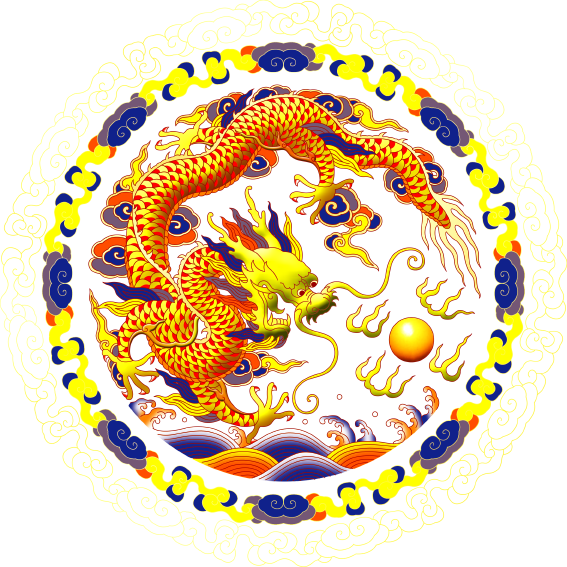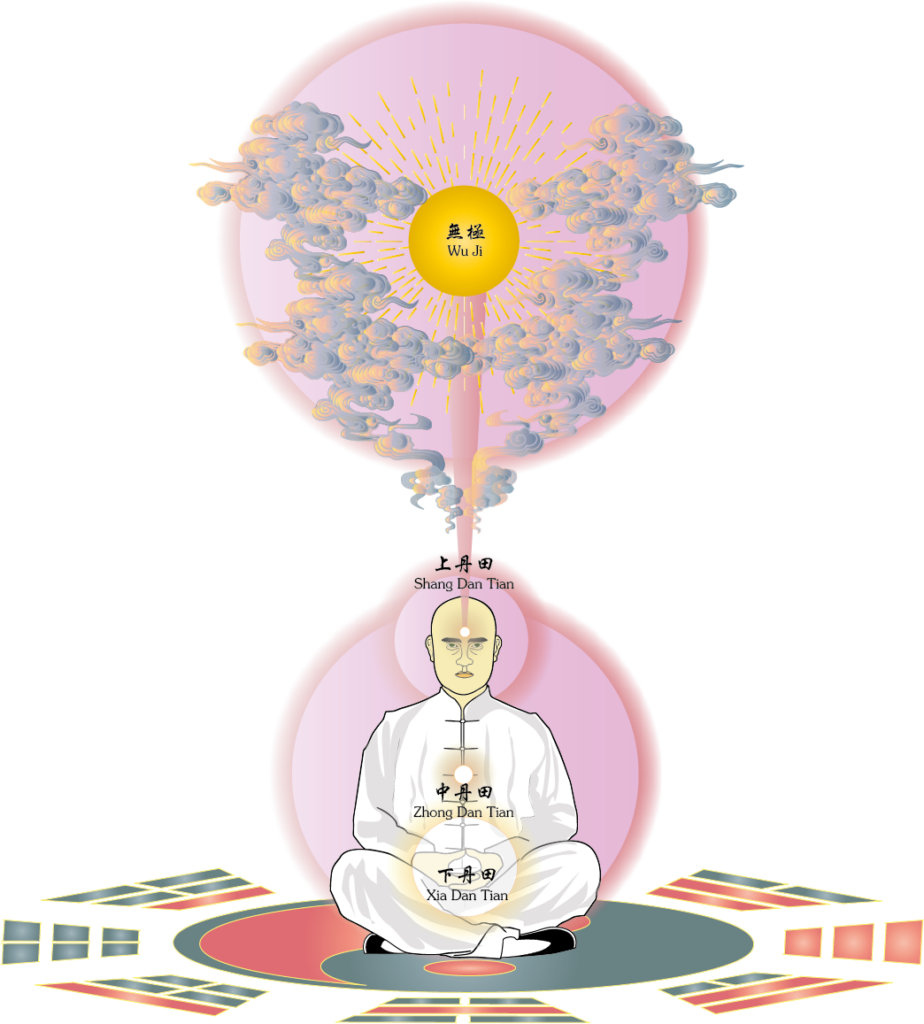
非正统道教
Unorthodox Taoism
Welcome to the Hun Yuan Pai School, where we embrace the practice of Unorthodox Taoism, offering a unique approach that allows individuals to adopt its principles without the need to change their religion. Our philosophy revolves around 道家 (Dàojiā) or “Taoist Family,” commonly known as Philosophical Taoism and Taoist Arts.
In the 道家 (Dàojiā) tradition, we delve into the deep teachings of the Tao (Dao), the Way, emphasizing simplicity, naturalness, and harmony with the universe. This branch encompasses a wide range of practices, including martial arts, therapeutic arts, divination, magic, and alchemy. Practitioners of 道家 are free to choose one or several disciplines, making it a flexible and personalized journey of self-discovery.
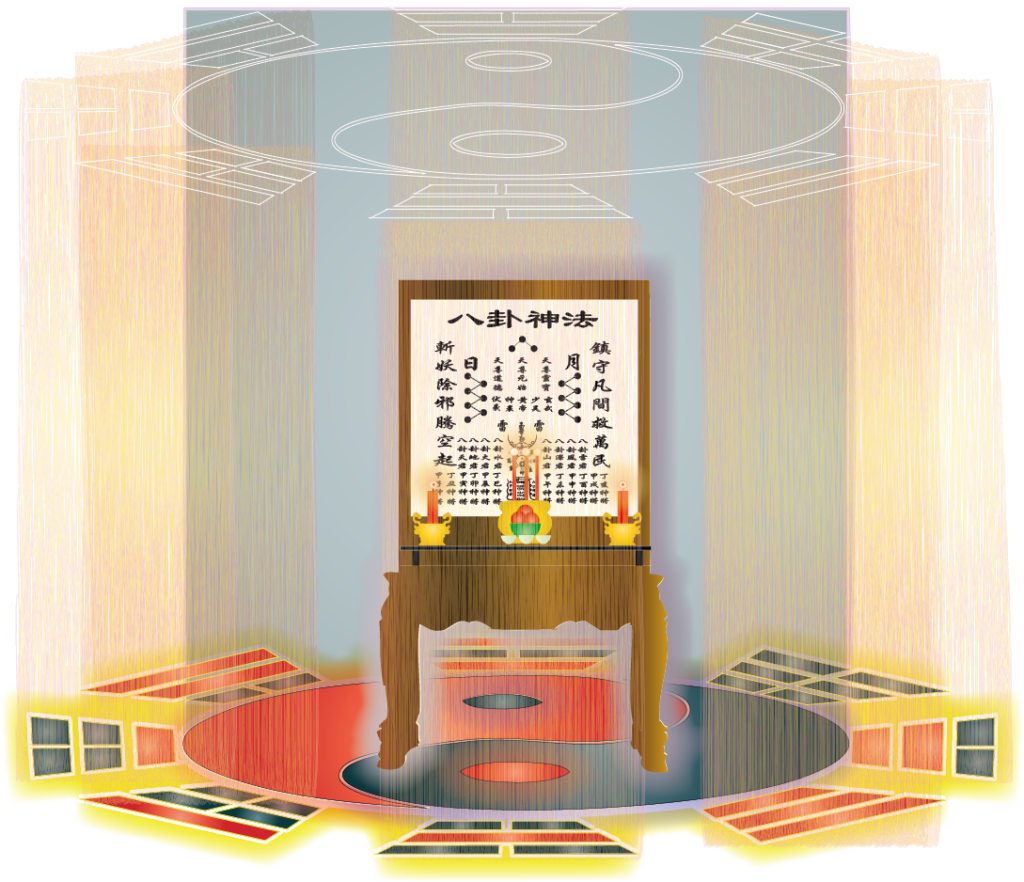
On the other hand, 道教 (Dàojiào) or “Taoism Teaching” represents Orthodox Taoism, organized as a religion with a hierarchical structure. Devotees follow prescribed rituals, worship Taoist gods, and lead virtuous lives. Unlike 道家, 道教 is more formalized and may not necessarily involve the practice of Taoist arts. It is recognized as a religion, subject to governmental and ecclesiastical authority. In essence, while 道家 focuses on the philosophical aspects of the Tao and personal development, 道教 incorporates religious elements and structured rituals. At Hun Yuan Pai, we exclusively practice 道家 (Dàojiā) or Unorthodox Taoism, interpreting it not as a religion but as a set of spiritual disciplines open to anyone, regardless of their religious background. Join us on a journey where you can embrace the essence of Taoism without the limitations of religious conversion, making it a versatile and enriching addition to your lifestyle.
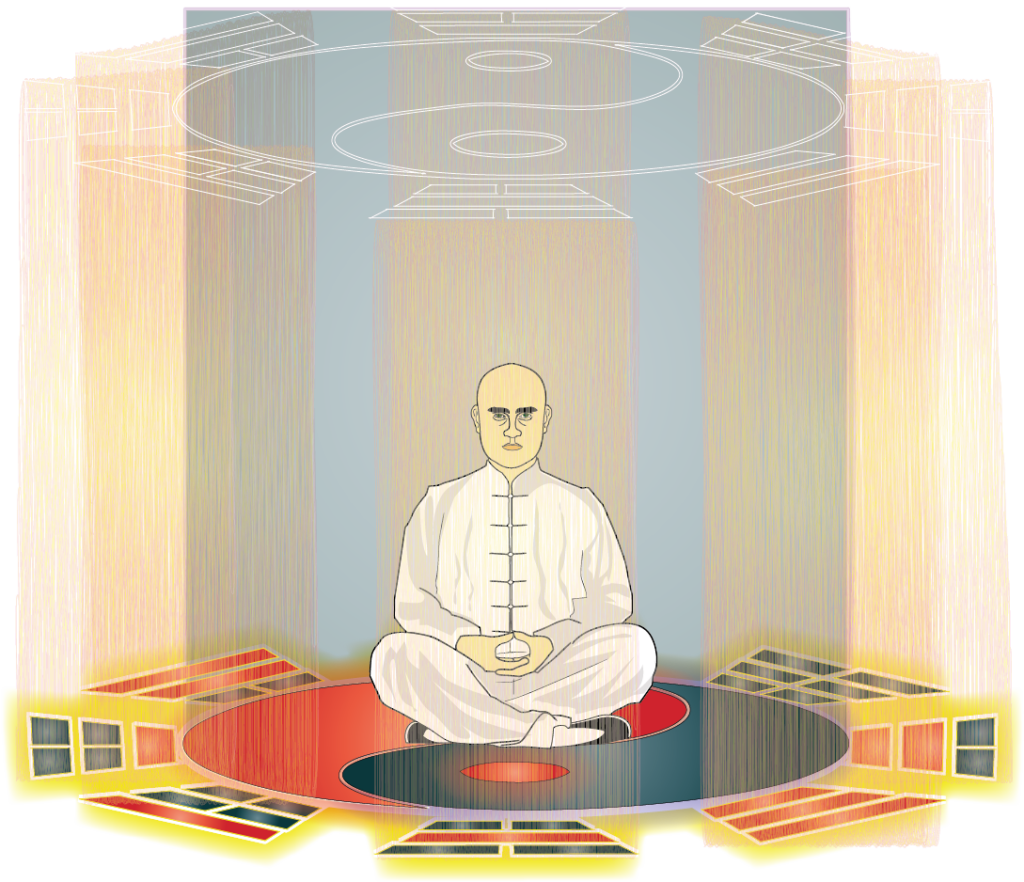
During the Ming Dynasty (大明) 1368-1644, China entered a period of decline for orthodox religions (Buddhism and Taoism), which had acquired significant political power and had become corrupted. They had become highly esoteric and had established strict hierarchies to maintain their power. Because of this, they lost the “mandate of heaven” by pursuing power instead of spiritualizing the people. The imperial court judged that the religions had been given too much power and represented a threat to the empire. Consequently, it minimized the political and economic power of temples. This resulted in both religious activities and personnel reducing their activities to the bare minimum necessary. The direct consequence of this was the emergence of many unorthodox spiritual sects by the common people. The imperial court viewed favorably that the spiritual needs of the people were met by sects and spiritual brotherhoods, not only pacifying the people but also not representing a threat to political power.
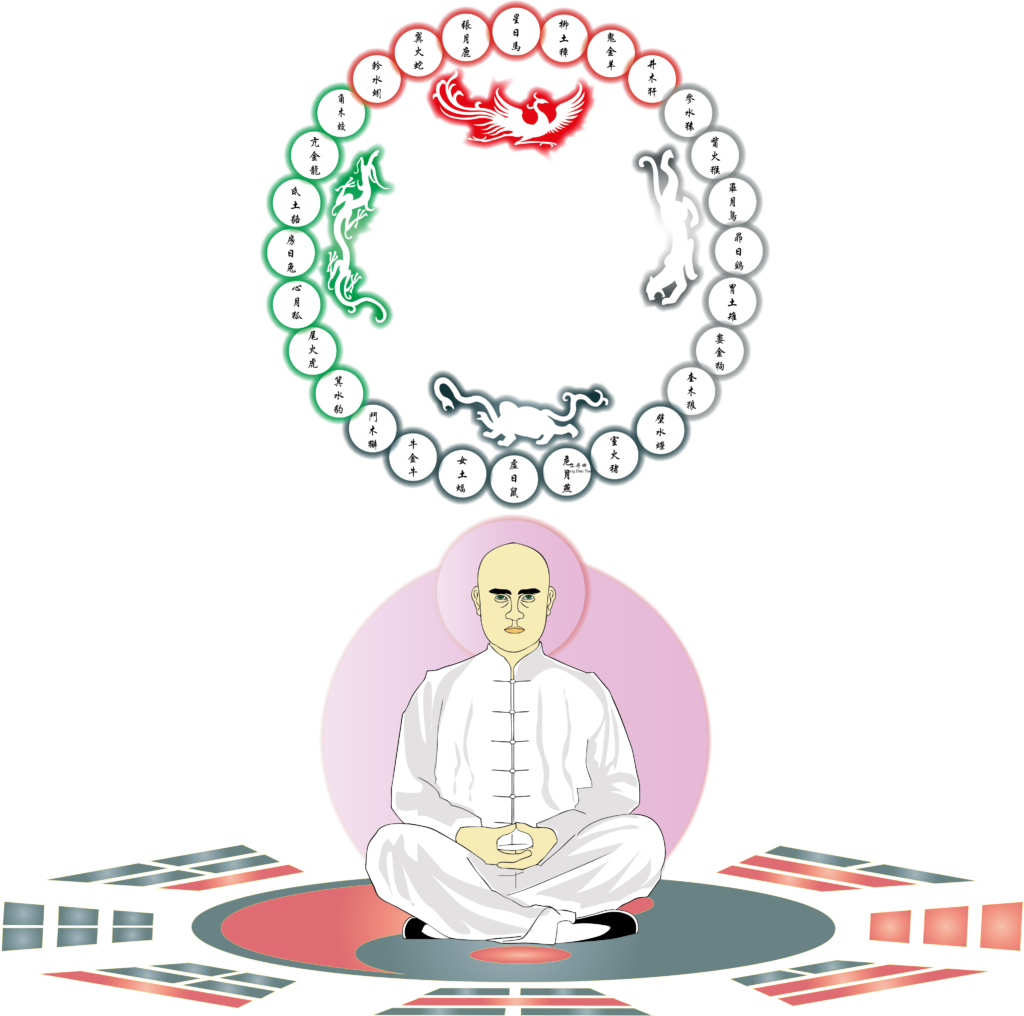
For centuries, orthodox religions had the exclusive privilege of being the only intermediaries between the deities and the people. Their rites and practices were jealously guarded and only revealed through a very rigid religious hierarchy. Only members of the highest social castes had access to it. The common people, in order to create their own worship methods to satisfy their spiritual needs, had to resort to combining different spiritual techniques to develop their own version of rituals and sacrifices to the universe and thus gain the favor of heaven to escape the wheel of births and deaths by freeing themselves from the illusion of the world. They combined teachings from Buddhism (佛教), Taoism (道教), Tibetan Lamaism (喇嘛教), and Mongolian Shamanism (蒙古萨满教). And they created indispensable rites to establish a harmonious relationship with God (上帝).
Rites of salvation (救赎的仪式)
Consecration rites (献祭仪式)
Purification rites (净化仪式)
Prosperity rites (繁荣 仪式)
Healing rites (愈合 仪式)
Longevity rites (长寿仪式)
Protection rites (保护 仪式)
Expiation rites (赎罪 仪式)
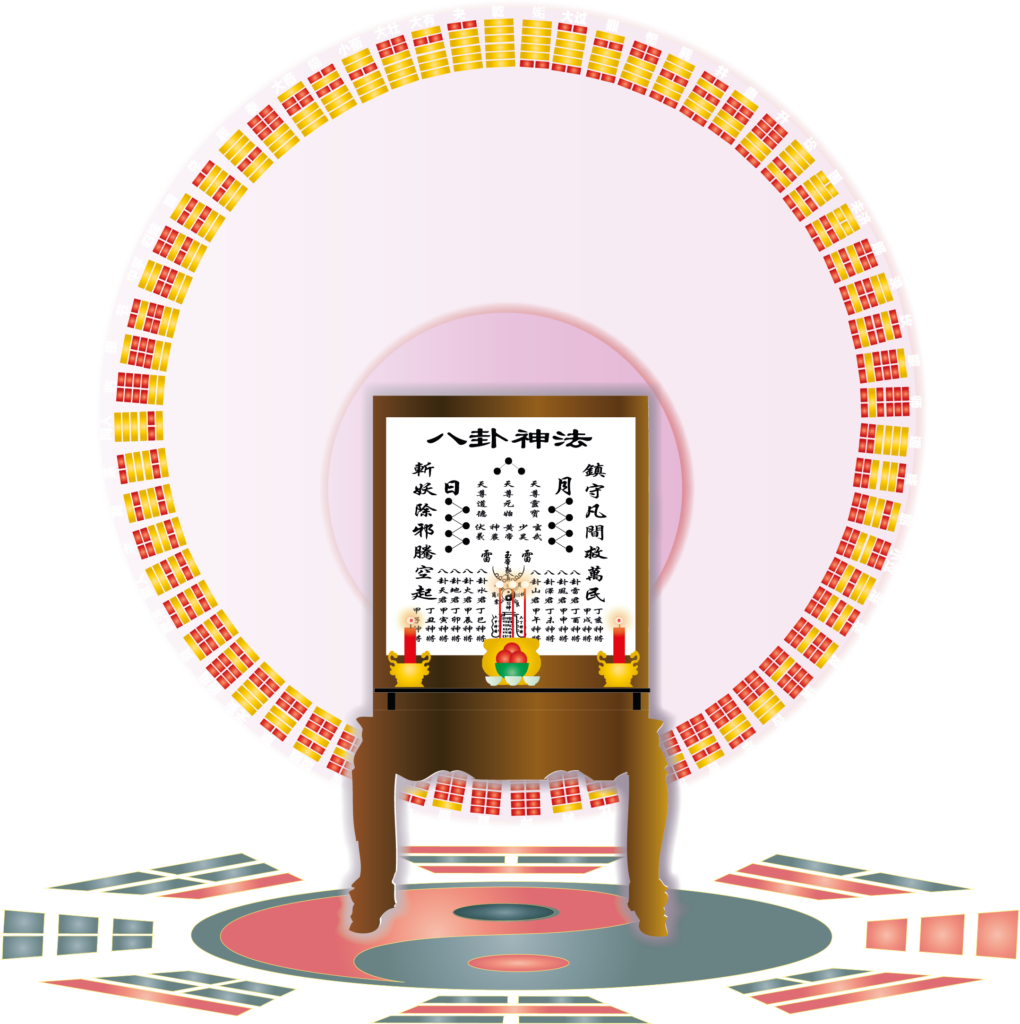
During the Qing Dynasty (清代) 1664-1912, the Manchu imperial court promoted the spread of religious practices from the steppes where the Manchu tribe originated. Because of this, many important lamaseries (寺庙) were built where Tibetan tantric Buddhism (喇嘛教) was practiced, and other places of worship for practicing the Mongolian doctrine called Cheng Li (撑犁) or Mongolian shamanism (蒙古萨满教). This diffusion was naturally welcomed by unorthodox sects as they saw in it the opportunity to learn and incorporate new forms of religious worship. The result of these mergers was the emergence of numerous sects that practiced powerful spiritual disciplines, spreading meditative techniques (禅), internal alchemy techniques (内丹术), tantrism (谭崔), and magic (巫术), along with the already popular martial arts (武术) and qigong (气功).
Throughout the Qing Dynasty (清代) for approximately 250 years, the growth and development of unorthodox sects were extremely rapid. Collaborating with each other or breaking away from each other, they multiplied throughout the country. With a compact body of knowledge that was eminently practical and totally free of ecclesiastical hierarchies, these sects had freedom of movement and autonomy. Any adept with enough practice time to organize group and individual practices could be Jiào Shǒu (教首) “leader of a group of believers,” and if eloquent, could be Guà Zhǎng (卦长) “Doctrine Preacher”.
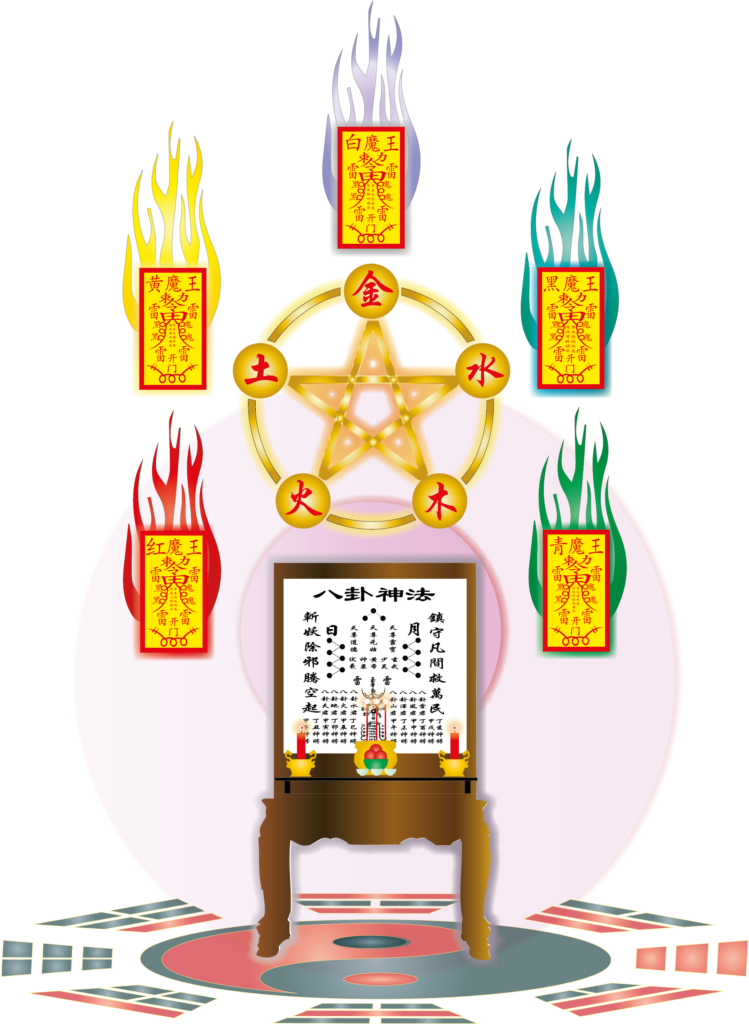
Every sect based its magical power (神功) on its own spiritual lineage (神传统). That is to say, the power of a sect was measured by the amount of psychic power that its members managed to accumulate year after year and generation after generation of practicing the same imagery exercises that brought its rituals to life. With the backing of this psychic power, they performed healing, prosperity, protection, and karma transmutation rites. To this day, mediumship, talismanic writing, healing by laying on of hands are practiced in these sects. It is said that much of this psychic power comes from practices of disciplines such as meditation, Taoist yoga, star walks or power dances, and martial arts practice.
Unfortunately, the same reason that made unorthodox sects so popular was the cause of their near extinction. The leaders of orthodox religions did not view favorably the rapid spread of unorthodox sects. Not only did they compete with the major religions, but they also freely disclosed the secret teachings considered taboo within Buddhism and Taoism. Furthermore, they were considered heretics for not observing celibacy, eating meat, and mixing all kinds of spiritual doctrines with the sole purpose of becoming popular among the masses.
But tolerance between heterodox sects and orthodox religions came to an end when in the mid-Qing Dynasty (清代) foreign powers began to introduce Christianity in China through Jesuit missionaries. When Christianity began to compete in the spiritual field with established beliefs, it was not only rejected but also seen as an attempt to colonize China. Due to the aggressiveness and rapacity shown by Europeans in Chinese territory. The first response to this colonization attempt was armed attacks and the systematic burning of Christian churches. These actions were attributed to the members of Bái Lián Jiào (白莲教) “The White Lotus Sect,” which was the largest and strongest organization in the entire country. These attacks left a large number of dead European laypeople and murdered Jesuits. This was such a major international scandal that the imperial court was forced to declare unorthodox sects illegal and imprison their leaders, disbanding their members. To this was added that European militias also killed in their leased territories anyone who was considered a member of an unorthodox sect. Orthodox religions (Buddhism and Taoism) took advantage of this moment of illegality of the sects and organized to openly combat them.
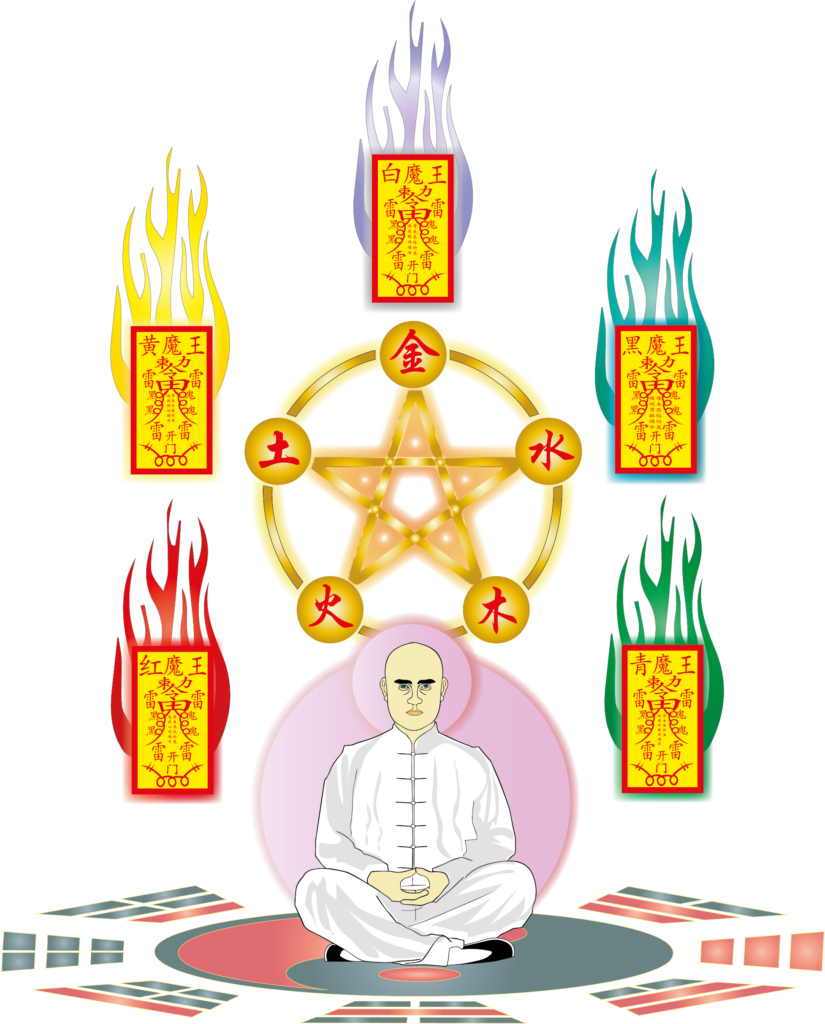
During this tumultuous period, some of the sects that managed to survive this terrible combined attack had to temporarily change their pantheon of deities and displace the Buddhist messiah Maitreya (弥勒) from the center of worship and instead establish warrior deities such as the 12 Celestial Generals of the North Star (十二天将), the Divine General Guan Yu (关羽), and the Monkey King Sun Wu Kong (孙悟空) himself. All these deities are figures of great power that formed the center of worship of the most combative sects that organized in a military style and declared a holy war on all their persecutors. This worship of warrior deities is practiced even to this day not only because it was the last format that some sects acquired. But also as a way to pay tribute to all the massacred believers and to the heroes who managed to keep the traditions alive. A good number of sects managed to survive past the fall of the last dynasty and the rise to power of the communist party. The key to their success was the large number of believers that the sects had throughout China and their excellent organization. But all was in vain because when the communist party came to power for ideological reasons, it massacred and imprisoned both orthodox Buddhists and Taoists and the leaders of heterodox sects alike. Because of this, many preachers and believers fled to Taiwan and other countries such as Singapore, Vietnam, and Malaysia to save their lives.
“Taoist Encounters: Navigating the Mysteries of the Tao and the Mandate of Heaven”
Dear seekers of the Tao path!
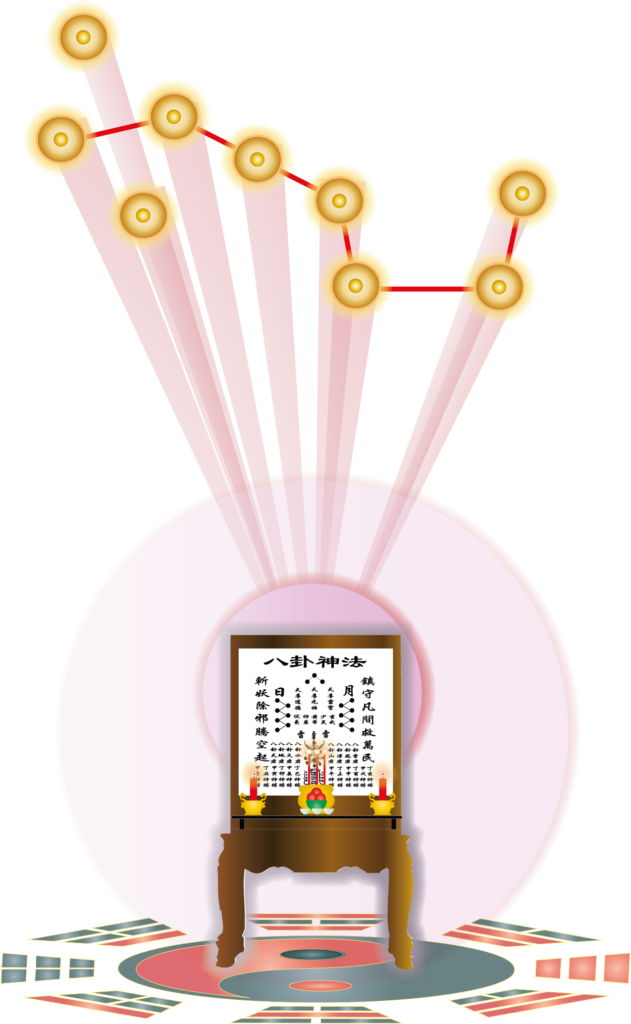
It is an honor and a joy to extend to you a warm invitation to our Taoist gatherings, where we delve into the depths of spirituality and connect with the Mandate of Heaven through the Method of the Eight Spiritual Trigrams.
In these sacred gatherings, we transmit the ancestral teachings of the eight trigrams of the posterior, anterior, and returning sky, exploring their meaning and application in our daily lives. Through this ancient method, we approach the wisdom of the universe and find guidance on our spiritual path.
Additionally, we dedicate ourselves to the study and reflection of the Dao De Jing, the sacred book of Taoism, which provides deep insights into the nature of the Tao and the path to harmony and fulfillment. In our meetings, we explore its verses with reverence and humility, seeking to integrate its teachings into our lives.
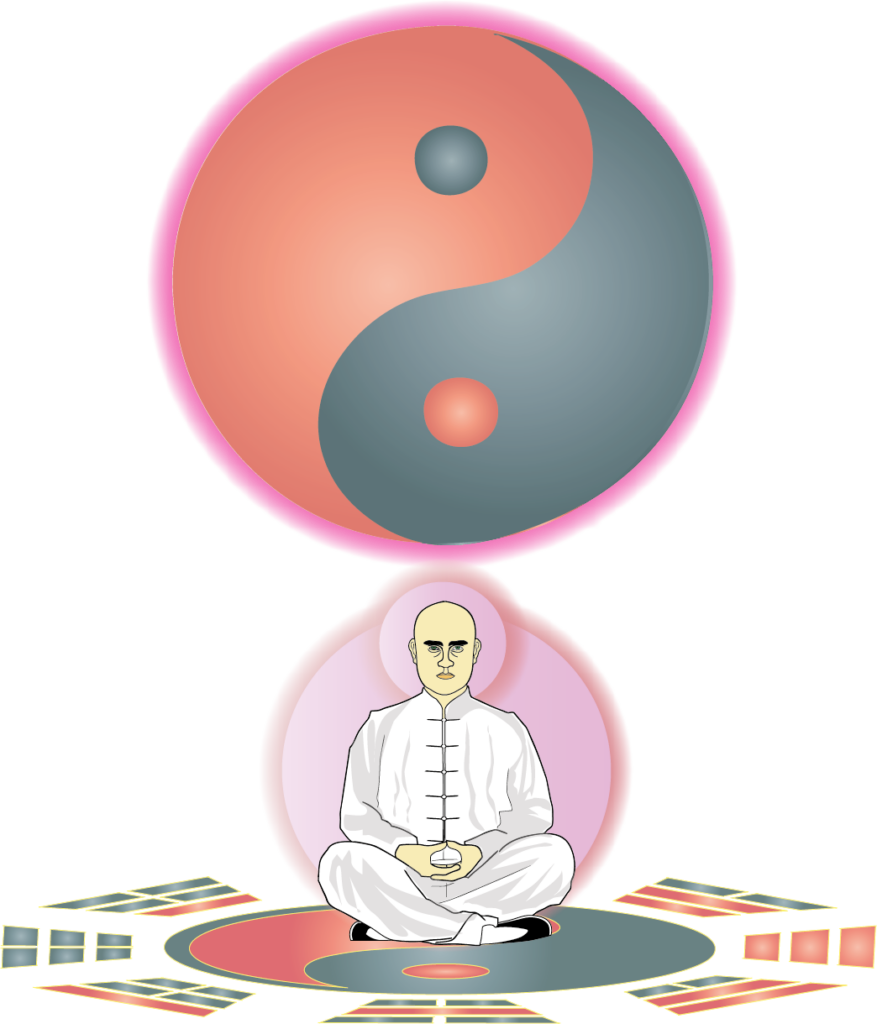
Likewise, we learn to interpret the Yi Jing, the Book of Changes, using its ancient symbols to understand the cycles of life and make wise and just decisions. Through these practices, we empower ourselves to attract prosperity, good luck, and justice into our lives, while protecting ourselves from negative influences and negativity that may disturb our spiritual balance.
It is important to note that our meetings are completely free and open to all who wish to join in search of knowledge, growth, and spiritual connection. Regardless of your background or beliefs, all are welcome to share this journey with us.
We invite you to join our Taoist community, where together we will explore the depths of the Tao and find inspiration and support on the spiritual path.
May the light of the Tao illuminate your path and guide you towards fulfillment and harmony.
Welcome to our Taoist gatherings, where the spirit finds its true home!
